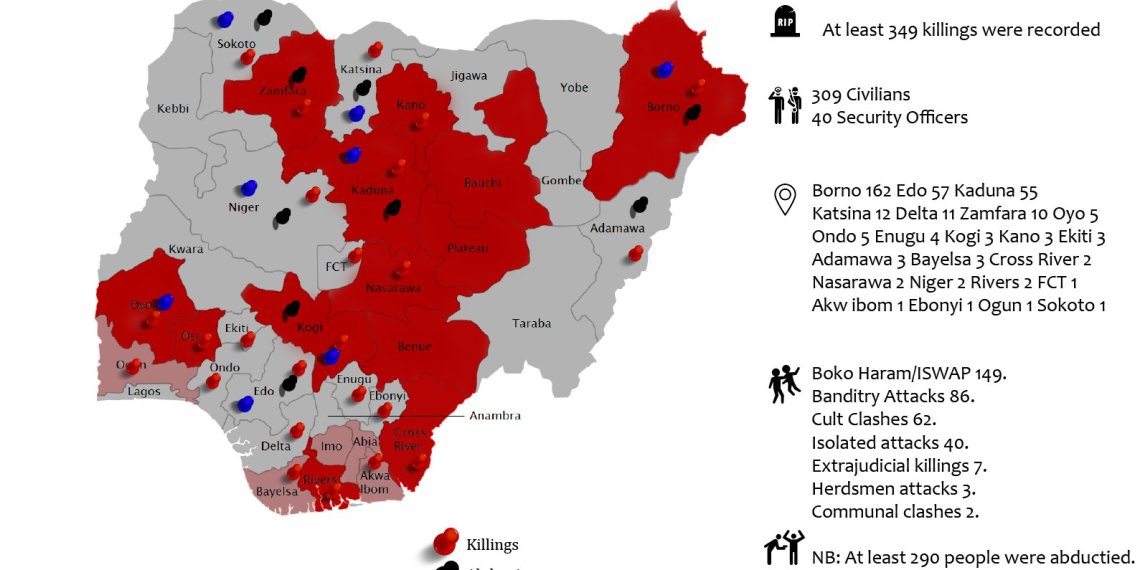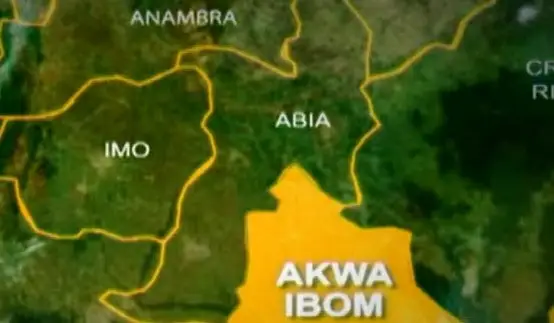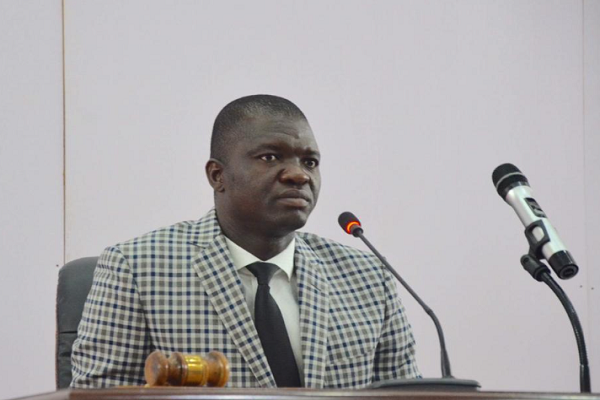At least 349 people were killed in November in violent attacks across Nigeria, a report by a non-governmental organisation, Nigeria Mourns, shows.
The report, titled “Violent Incidents Report: November 2020,” tracked violent killings across the country. The group uses newspaper reports and family sources to gather its data.
It said the November cases were recorded in 23 states.
The breakdown shows that 309 of those killed were civilians while 40 were security operatives.
Also, 290 people were reported kidnapped in November.
Borno State in Northeast Nigeria, troubled by the Boko Haram insurgency, had the highest number of killings during the month (162). After Borno, the geographical spread of the other most affected states shows the insecurity is not limited to any single part of the country with Edo in South-south Nigeria witnessing the second highest number of killings in November.
The report listed the casualty figures for each of the 23 states as follows:
Borno – 162, Edo – 57, Kaduna – 55, Katsina -12, Delta – 11, Zamfara – 10, Oyo – 5, Ondo – 5, Enugu – 4, Kogi -3, Kano – 3, Ekiti – 3, Adamawa – 3, Bayelsa – 3, Cross River – 2, Nasarawa – 2, Niger – 2, Rivers – 2, FCT – 1, Akwa Ibom – 1, Ebonyi – 1, Ogun – 1 and Sokoto – 1.
In terms of perpetrators of the violence, the report states that 149 people were killed by persons suspected to be members of the Boko Haram or its breakaway faction, ISWAP; 86 were killed by suspected bandits while cult clashes claimed 62 lives.
Also, 40 people died in isolated attacks, seven died through extrajudicial killings, three were killed by herdsmen and two died in communal conflicts.
As insecurity continues across the country, many Nigerians have called on President Muhammadu Buhari to replace his service chiefs, but he appears not to think their overstay in office has a link to the insecurity menace.
Despite taking office in 2015 with a pledge to make security a focal point of his administration, the security situation appears to have worsened across the country. This is despite counter narratives by government officials who mention the failure of the Boko Haram to carry out attacks outside Adamawa, Borno and Yobe as a sign the group has been decimated. However, while Boko Haram attacks in states like Niger, Nasarawa and Abuja have ceased since 2016, other forms of criminality including kidnappings have been on the rise in those states and many other parts of Nigeria.
Mr Buhari’s senior media aide, Femi Adesina, in an interview on Sunday, claimed the president is winning the war against insecurity, despite the recent kidnap of over 300 schoolboys in Katsina and other cases in many other parts of Nigeria.
Mr Adesina also urged Nigerians to be patient and not give the president a timeline to curb the wave of insecurity.







